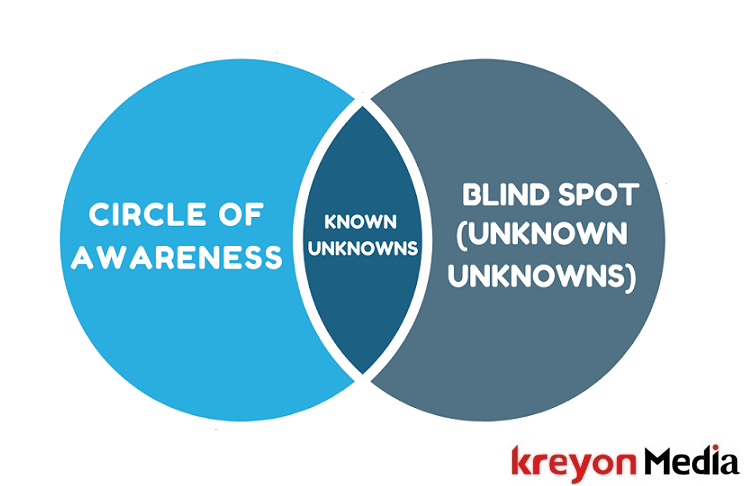
Leadership is the art of communicating the right things at the right time to the right people for achieving a shared vision. The ability of a leader to communicate can make the difference between success and failure of a mission. The best of intentions need to be backed up with good communication & leadership skills to make things happen.
Studies have shown that if you want to be an effective leader, you need to excel in communication. Infact, inadequate communication is directly related to the bottomline for organisations. Research conducted by Society for Human Resource Management found inadequate communication can cost large companies a loss of $64.2 million every year. For smaller organisations, they risk losing almost $420,000. The habits of communication can make a difference to the fortunes of organisations and build people to achieve challenging missions.
1. Information Sharing
Leaders need to share and keep their subordinates informed about their organisation. The ability of a leader to share key nuggets of information builds trust and confidence in the team. Even when things are going wrong, information and data can be used for corrective measures.
When a new policy is introduced, it is the job of the concerned leader to articulate it to the organisation. Successful organisations share relevant information that pertain to employees, vendors and customers to win their trust.
2. Active Listening

Many times, leaders live in a silo, and fail to listen to their teams. This is more so when the leader is the most intelligent person in the room. Teams can often feel overwhelmed and not communicate freely with the leaders. But the best leaders make conscious attempts to listen, understand and respect the opinions of their people. Nothing makes a leader more effective than active listening skills.
Leaders can get signals and clues on many important things by listening. Interrupting your teams when they are speaking, completing their sentences and a know it all approach can be counterintuitive for leaders. Good leaders engage in a conversation, they ask questions, take notes, feedback and most importantly respect the opinion of the other person.
3. Setbacks
Leaders are often facing setbacks due to volatile business situations, hard to reach targets and often find themselves in an isolated position. When things are going wrong, it becomes important for leaders to rally their troops. Leadership needs to handle setbacks by aligning their teams and resources in the right direction. They have to ensure that they are forging forward in any situation towards achieving their goals.
A leader’s ability to handle setbacks as a challenge, take feedback and opinion of his team in tough situations can build a great organisational culture. When things go wrong, every team member should be able to walk up to the leader and seek the way forward.
4. The Focal Point

Great leadership skills are all about making people achieve things beyond their imagination. It is possible by narrowing your focus on the most important things and doing them to the best of your abilities. When leaders articulate the priorities, teams can deliver impeccable results.
A lot of teams fail, because they keep changing the directions too often. Despite the changing business models, priorities and situations, great teams stay focused and achieve their vision. Leaders help their teams focus on their core activities, deliver their best work and eliminate other distractions. They work with focus and resolve until they meet their targets. Leadership takes responsibility for people climbing the right ladder for their individual & organisational success.
5. Ego
Leadership is about connection and communication, not about superiority. When leaders communicate with a sense of ego, the team suffers. The best leaders know how to manage their egos and sense of importance. They understand what they do is more important than who they are. This is true for every individual in the team.
A good team may have star players, but the team is always bigger than an individual. The best leaders maintain consistent standards and policies for everyone. They’re considerate but never unfair. They communicate with good self awareness and understand how to take people alongside them.
6. Blindspots & Self Awareness

Everyone has blindspots, but the blindspots of a leader get highlighted more than others. A leader who knows his blindspots and trusts people in his team to cover up those aspects earns the respect of his team.
When a leader communicates with awareness and knows what he doesn’t know, he appears more authentic and trustworthy. A good leader builds a team that helps each other do better every day. They complement each other, resolve conflicts and do their best work together.
Failing to acknowledge the blindspots and communicating with confusion can often create hurdles in leadership. A leader often needs to build a team of trustworthy lieutenants around him. For e.g. a CEO with a strong sales expertise may not need help in understanding modern technology aspects and how they affect business. A good CEO will often have a few trusted people who will guide and drive the technology strategy of the company.
7. Difficult Conversations
Leadership is not about being good and pleasant with others, but creating an impact and achieving the desired results. A leader needs to have difficult conversations with people on his team, provide constructive feedback and get things moving.
Great leadership skills are needed in times of complexity, conflicts and difficult situations. The best leaders learn the art of negotiating with people, whether it is their teams, customers or other stakeholders. They identify conflicts, problems and work towards resolutions early.
The conversations and communication are an integral part of leadership. The work and personal relationships are built on these communications. Every failed communication can impact a relationship, whereas every successful communication strengthens it. Good leaders learn to communicate successfully & build a shared consensus among their teams to achieve a great impact.







